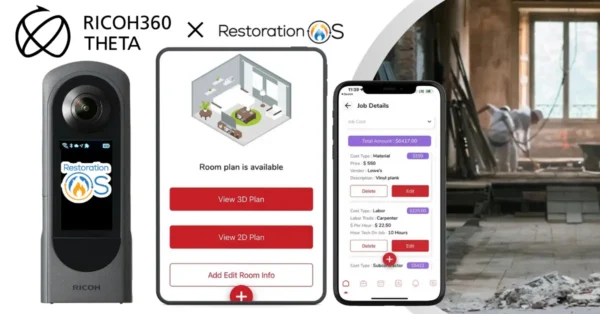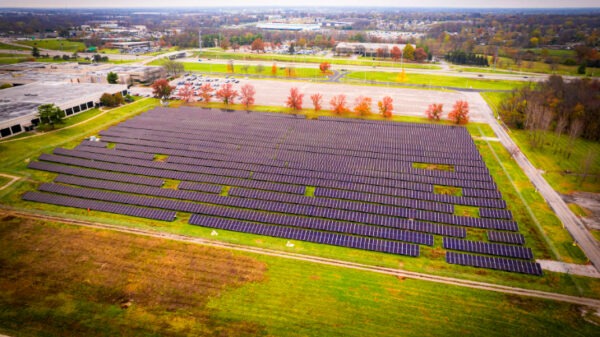Why doesn’t anybody want to talk about it on or off the record?
You’d think that with the news these days about climate change, vendors and dealers would have something to say about sustainability. Yet after making multiple requests of various MFP dealers and vendors, asking only for short responses to basic questions and providing generous deadlines, I got zip, nada, bupkis. One OEM promised to respond but never did, while another flatly refused to participate.
Living Large on the Web
Curiously, sustainability lives large on the websites of major vendors of digital presses and office technology. All have substantial sustainability programs. Here’s what can be gleaned from vendors’ websites:
Canon says, “At the heart of Canon’s commitment to the world community is the belief that we are building a better world for future generations.” Links on the site delve into full range of products at Canon. https://www.usa.canon.com/about-us/kyosei-our-corporate-philosophy/environment-and-sustainability
Epson’s aggressive sustainability approach is included in corporate positioning about achieving sustainability in a circular economy, advancing the frontiers of the industry, improving quality of life, and fulfilling social responsibility. https://corporate.epson/en/sustainability/
HP, focused on becoming the world’s most sustainable and just technology company, claims to be taking urgent action to combat climate change, protect human rights, and accelerate digital equity. Its website links to a host of global programs in education, recycling and carbon offsets. https://www.hp.com/us-en/hp-information/sustainable-impact.html
Konica Minolta has been noted for several years as the most sustainable technology company on the planet and garnered numerous awards for its activities. Yet a word-specific search of its website was necessary to find the extensive listings and links related to sustainability or environmental issues. https://kmbs.konicaminolta.us/about/environmental-awards/
Kyocera appears to focus on sustainable business growth in the context of environmental responsibility. According to its website, Kyocera focuses on reducing the environmental impact of its machines and minimizing running costs. https://global.kyocera.com/sustainability/index.html
Ricoh supports the United Nations’ Sustainable Development Goals, a global partnership for achieving a more sustainable future. Ricoh’s building blocks include people (society), planet (environment), and prosperity (economic activities). https:/ricoh-usa.com/en/about-us/corporate-responsibility-and-environmental-sustainability
Sharp formulated its long-term environmental vision, Eco Vision 2050, in 2019, based on a policy of “Creating an Environmentally Conscious Company with Sincerity and Creativity.” Sharp says it is working toward realizing a sustainable global environment by pursuing goals in climate change, resource recycling, and safety and security, with 2050 as the target year. This, says Sharp, builds a circular economy and realizes a recycling-oriented society https://business.sharpusa.com/Environmental-Awareness
Toshiba claims to possess “Eco Smarts” that are right for business and the planet. According to its website, Toshiba is committed to building technology that doesn’t throw the future away, touting its Ecosmart designs and methods that help reduce wasteful printing, identify energy-efficient devices, and support carbon neutrality. https://business.toshiba.com/about/sustainability
More Realities
In most instances, equipment vendors’ sustainability or environmentally responsible initiatives often begin with their larger machines that wear seven-figure price tags, use lots of power, and sport monthly duty cycles in the millions of pages. One such vendor, to which I had mistakenly emailed my questions, provided thoughtful responses.
“Sustainability is a buzzword for some, but more and more companies are having to show how their operations are sustainable,” said Nicole Tully, manager for marketing communications and sales enablement at Canon U.S.A. in Boca Raton, Florida. “Customers say they want to build their sustainability profiles and learn how to communicate it to their customers.”
You might think there would be some trickle-down from the big machines to the smaller boxes these companies sell, yet no one wanted to talk about it. Ironically, these vendors run significant sustainability programs in Europe, where many people seem to prefer sustainable products over those from companies indifferent to sustainable and/or environmentally friendly choices. This extends from broad European consumer-level practices such as not offering free paper bags in stores, robust recycling programs, and fewer single-use consumer-level plastics, all the way to printing presses that use food-safe toners or put less ink or toner on a page. It’s hardly perfect, but it’s a move in the right direction.
In contrast, sustainability is seemingly less of a concern in the American consumerist culture of Walmart, Amazon, and cheap gas. I can almost—almost—understand U.S. dealers not thinking about the topic, but having OEMs that do business here unwilling to say a word is, well, troubling. Meanwhile, sustainability is becoming more important in America: A large dealer I recently spoke with runs his entire operation on solar power. So does a transactional mailer I know, using large MFPs he obtains from a dealer.
Learn More
It is no secret that our planet is warming. Natural, anthropogenic, or both, this is a scientific fact, not a political issue. The data show it to be happening, and one of the ways to mitigate some of the change is through sustainable practices. These can be as simple as installing LED bulbs at home, using less water, and turning out lights in office buildings. It can also be selling and recommending energy-efficient copiers, scanners, printers, and MFPs that duplex, have durable components, use non-toxic ink or toner, and need fewer pricey consumables.
Know that all OEMs have sustainability initiatives, even though your contacts with a vendor may not be aware of them. Be persistent about learning more. Ask how your OEMs can support you and help you extend their sustainability program to end customers. Then, go deeper and more local.
Talk with your customers. Help them think about their energy footprint. This includes the sustainability of the devices they use. For example, the MFPs and copiers you installed three or four years back may be energy hogs compared to new devices, significantly adding to the customer’s utility bill. Moreover, those end-customers probably have customers who consider the environmental footprint of the companies with which they do business. Even though you may not have customers thinking about this now, they will before long. As a dealer, you will be better positioned to serve them if you have your own sustainability program in place. But first, you need answers to some questions.
Begin with your own company and ask yourself and your management team:
- What does sustainability mean to you as a dealer?
- How important is sustainability to your business?
- What does sustainability mean to your customers?
- How important do you think sustainability is to your customers?
- Do product labels claiming sustainability or energy efficiency matter to businesses buying office technology?
Then start the conversation with customers by asking…
- How important are sustainability and energy efficiency with respect to your copiers, printers, and MFPs? Why?
- Would you be interested in saving X% in electricity when running your fleet of MFPs and other devices?
- How important is sustainability related to consumables such as paper, toner, and ink?
- How important is sustainability to your employees and the companies with which you do business?
- Do you have someone whose job is recommending or deciding which copier/scanner/MFP to buy or lease? How do they make their decisions?
- Do you think this person is energy conscious or interested in sustainability, or do they just look for the best price?
You can go deeper, but these questions help start the conversation. Not all customers will care. But some will, and if nothing else, they may like telling their customers they use energy efficient office technology, partly as a statement and partly because their customers may think the same way. Sustainability is important in Europe, and the same thinking is crossing the Atlantic. Like it or not, your company and its customers may soon be judged by its stance on sustainability, so you need to think about it now.
Be the exception in a dynamic and changing market.




